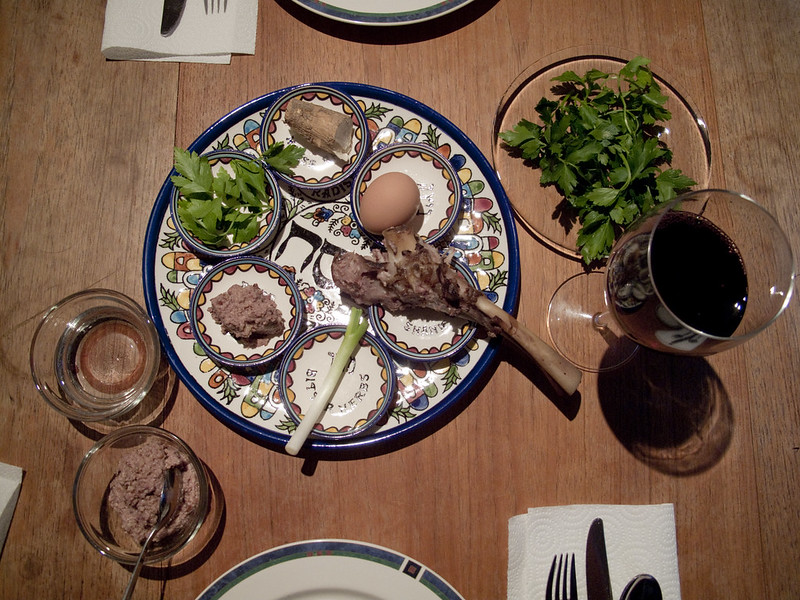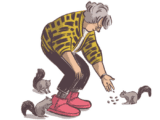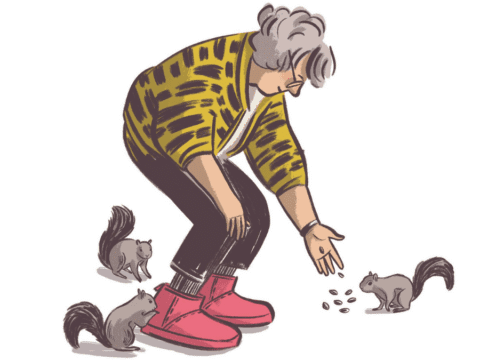As part of the Passover seder, the youngest at the table traditionally asks: “Why is this night different from all other nights?” The answers are always the same, but this year that question takes on a whole new dimension because of the COVID-19 pandemic.
While some may be worried about breaking the rules of how Passover is done, Rabbi Denise Handlarski, spiritual leader of Oraynu Congregation for Humanistic Judaism in Toronto, explains that Judaism allows for space to create meaning when planning a seder.
You may unsubscribe from any of our newsletters at any time.
“There’s lots of room in our tradition for changing it up to make it suit you — and for play. So really embrace that this year; do stuff that will feel good,” she says.
Virtual seders
One popular option is hosting a seder over Zoom, which allows people to be together but physically distant. Melissa Kluger is attending a virtual seder this year with her extended family (everyone will be in their respective homes). Kluger, who says this is her favourite holiday and calls herself a “Passover nerd,” sees this as a way of broadening the celebration to a wider group.
“This year you could truly open your home to anyone who has access to the internet, which actually makes it much more in keeping with the idea of opening your door to all who want to come,” she says.
Devon Spier is a rabbinical student, author and artist who lives in Kitchener, Ont. She’s hosting a virtual seder with people from around the world, most of whom she only knows online. All of the guests are either the partner of a frontline worker, a frontline worker or someone performing essential services, including a grocery worker and restaurant owners.
More on Broadview: How I grapple with sacrifice during Lent and COVID-19
“We’re jokingly calling this the Call the Midwife seder because we’re bringing a different world into being where we can be connected and not alone,” explains Spier, whose partner is a pharmacist. “And we’re kind of midwifing our partners and our friends and the people we love into doing this really important healthcare work.”
The participants, some of whom aren’t Jewish, will all play an active role in the seder, using the service as a way to connect the past with their present circumstances. “The guests will be coming together to tell their stories of Exodus and how they’re making do, but also how they’re making deliverance out of making do,” Spier says.
New traditions
Actively marking this as an extraordinary version of the holiday is something people are thinking about as well. As part of her seder, Carolyn Wilson of Toronto plans to address the connections between the Passover story and the pandemic.
“I’d like to use it as a way for my kids to talk about what is maybe scary for them right now,” she explains. “I’ll ask them what they think they would have done had they been enslaved Jews in Egypt and then having to flee quickly and how that relates to now, to hopefully give them a way to express some of the emotions that might be more challenging.”
Kluger wants to get each family in her seder to suggest something to add to the seder plate to symbolically note this year as being different. She’s also considering adding a prayer called the Mi Sheberach. “It’s a prayer for healing that doesn’t usually get said during Passover,” she says. “The whole world needs healing right now.”
Safely reach out
As a way to focus on the themes of peace, justice and freedom, Rabbi Handlarski suggests people celebrating Passover donate to food banks. She also encourages people to deliver Passover items, such as matzah, to those who are in quarantine or frontline workers.
Whatever way people choose to celebrate, it should be in a way that doesn’t compromise anyone’s health, says Rabbi Handlarski. “I really, really encourage people to respect the rules of the distancing and not get together with grandparents and that sort of thing, even though it’s hard.”
Kluger agrees: “The most important takeaway should be that you find a way to make it meaningful and still keep your family safe.”
Broadview is an award-winning progressive Christian magazine, featuring stories about spirituality, justice and ethical living. For more of our content, subscribe to the magazine today.















With the slowness of mail presently, I have the privilege of spending a portion of Good Friday reading Broadview on line. In particular, the articles, “Passover Seders…”, “Unravelling the Myth of Mary Magdalene”, and “A Different Approach to the Stations of the Cross” broaden my thoughts, ground and strengthen me in the present and give hope-in-action for the future if we continue to practice social accountability and responsibility. In relation to the Passover story of our Jewish community, stories of other faith communities and the Good Friday./Easter story physical distancing and personal hygiene is a “small price” to pay for those of us who are non-essential workers. I think, in particular, of the stories of children evacuated from their homes in Britain and of Canadians of Japanese background evicted from their homes and communities during WWII. Thank you, Broadview, and all contributors.